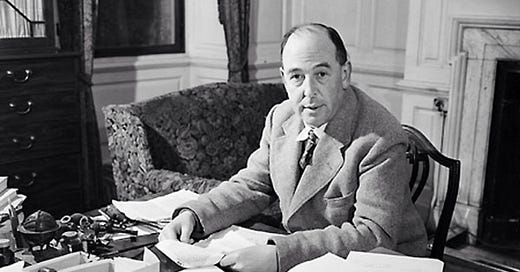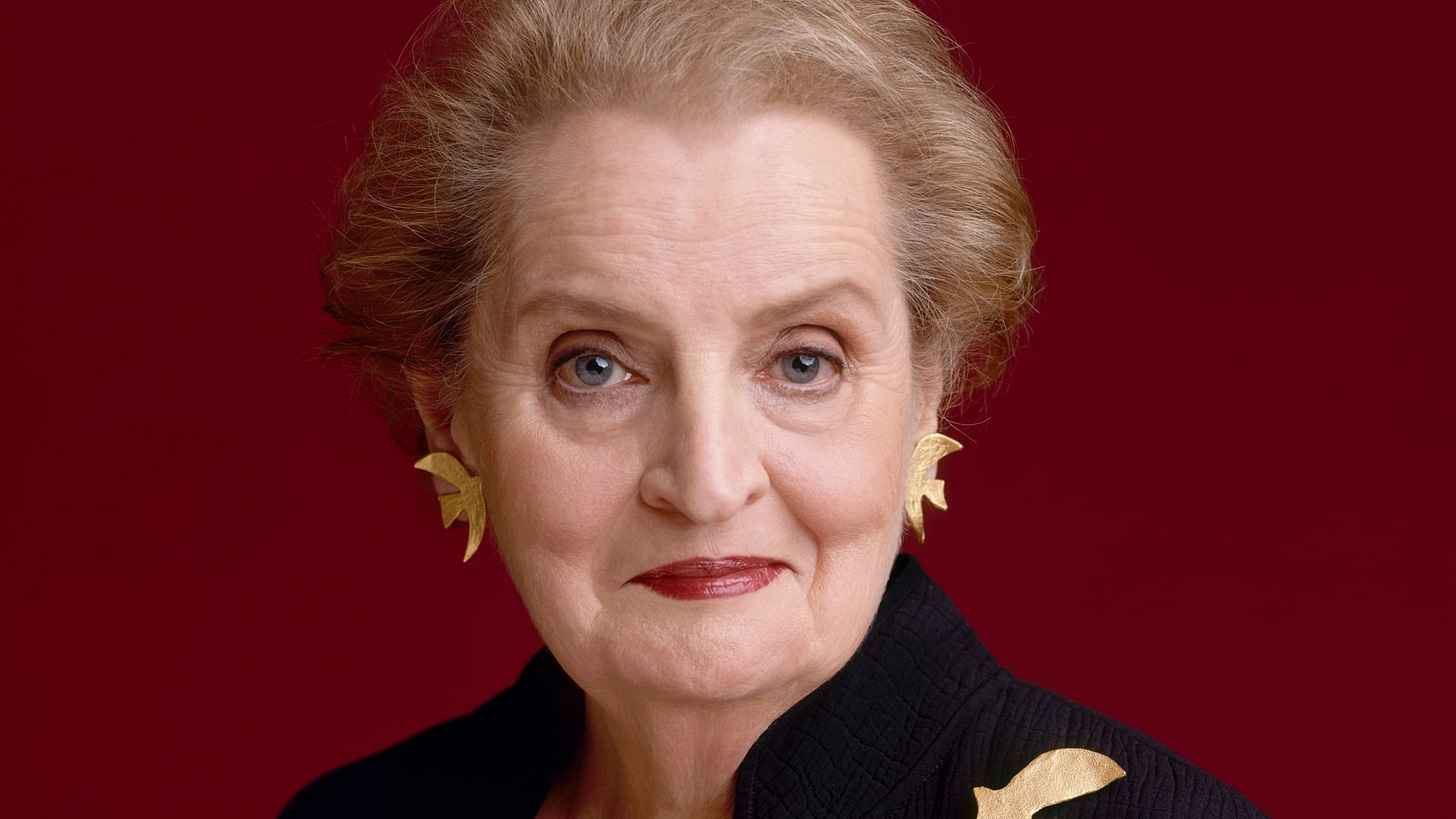“Of all tyrannies, a tyranny sincerely exercised for the good of its victims may be the most oppressive. It would be better to live under robber barons than under omnipotent moral busybodies. The robber baron's cruelty may sometimes sleep, his cupidity may at some point be satiated; but those who torment us for our own good will torment us without end for they do so with the approval of their own conscience.”
― C. S. Lewis
Anthropomorphism is the attribution of human traits, emotions, or intentions to non-human entities. I look at all life through the lens of evolutionary biology, and I view the main difference between humans and other animals as our ability to cooperate, communicate, and socialize. Our survival (and reproductive fitness) depends on a robust, intuitive understanding of ourselves and others. I am convinced that this schema is applied more often than not, and that outside other individuals this application is inappropriate. When applied to the universe, we get God. When applied to the Earth, we get Gaia, and when applied to a society, we get the Collective. If our intuition was right all the time, we wouldn’t need the scientific process. Science has the capacity to teach us truths about the universe that we might otherwise be blind to where our intuition doesn’t align with reality. Unfortunately, the closer you get to human beings in a field of study, the more difficult it can become to avoid the pull of the intuitive artifact of natural selection called anthropomorphism.
Since public health is all about people, the tendency for professionals within this field to think of the public as a superorganism that can be directly measured and affected by policy is very difficult to resist. This anthropomorphization of the public gives way to a disordered thought process referred to in psychiatry as magical thinking. In magical thinking, one's thoughts, actions, or words can cause or prevent a specific consequence in some way that defies or circumvents commonly understood laws of causality. In this case the bureaucrat thinks his or her recommended policy can directly act on the superorganism, but in reality, the policy has independent effects on the health of individuals within that population. Failure to actively consider this causes the harms wrought by coercive means to be systematically discounted in the minds of those who impose them. They think themselves benefactors of the superorganism, and certainly some individuals will enjoy any given public health policy as it is something they would have preferred to do anyway. Some even wish to impose such measures on others by force but only lack the means. Unfortunately, every individual who would not have complied with a given public health policy in the absence of coercion probably suffers a decline in their health (if health is properly defined as a condition of optimal well-being). Sometimes this decline is so severe, that it destroys the individual in question. A price I’m sure bureaucrats like Madeleine Albright, believe is worth it.
Collectivism as an ideology permeates the minds of the managerial class and the institutions they inhabit throughout the western world, but no field is more completely mired in the fallacy-laden assumptions of collectivism than public health. Those that engage with and support the myth that coercion can be used to enhance “public health” consistently harm all of mankind. I won’t say that they’re evil, but such an argument could be made. If we are to measure people by their intentions, then they are mostly saints, I am sure, but reality demands that we focus on outcomes lest we cheer on the unintentional murder of millions.
If we just look at the dictionary definition of public health, it doesn’t seem like it has to be this way:
“The science and practice of protecting and improving the health of a community, as by preventive medicine, health education, control of communicable diseases, application of sanitary measures, and monitoring of environmental hazards.”
Using this definition, it seems like public health could be a completely legitimate field aimed at focusing on threats to individual health that tend to impact entire communities so long as coercive means are not recommended or used. The effort made by the scientists of the Great Barrington Declaration fit this description, and over 20,000 public health experts signed it. Isn’t that proof public health is a worthwhile endeavor? I’m not so sure. These individuals were widely smeared by media and ignored by government after they made the evidence based recommendation for at risk individuals to isolate in accordance with their own tolerance in the covid context. If the only competent public health officials are systematically silenced and/or ignored by policymakers, then why fund their research and pay their salaries in the first place?
Since this time in October of 2020, robust analyses from mainstream institutions have shown that lockdowns, masks, and vaccination have done nothing to mitigate the spread of covid while costing billions outright and trillions in opportunity cost. Hundreds of millions will die of starvation as a result (or so I’ve seen estimated). Lets not forget that this virus is (most probably) the result of gain of function research purportedly directed towards protecting… public health! This is only the latest debacle in a legacy of ashes stretching back to when public health was incredibly cozy with the eugenics movement.
So what is the answer? Here at H2F Man, I don’t like to complain without offering up some practical solutions. I think the idea that there is a collective responsibility for health needs to be abandoned entirely. The responsibility for the health of individuals needs to be laid somewhere though. If there is ambiguity as to who is responsible, then no one is responsible. Responsibility should be laid at the feet of whoever has the most control over the variable in question. For health, that is almost always the individual. Sometimes it is parents, or legal guardians. I don’t think it should ever be the state. The state doesn’t give a shit about your health. When I say “the state” that is really just shorthand for public health bureaucrats. They are all very much convinced that they care, but functionally they are not incentivized to care in a meaningful way because they don’t directly experience the outcomes of their recommended policies. They care in abstraction. They care in so far as it indicates to themselves that they are good people. Another issue to contend with is that they don’t have the information required to optimize individual health. Health, or the condition of optimal well-being, is highly dependent on the subjective values of each individual. If you need to know subjective values to make optimal health decisions, the agent most likely to have that information is the individual that decision making authority/responsibility should be assigned to. This, again, is almost always the individual whose health is at stake. To be clear, I’m just talking about responsibility and decision making authority. So public health bureaucrats can keep doing research and making recommendations. Maybe the world would be a better place if they did so without the aid of taxpayer dollars, but if that is not politically expedient, can we at least agree that governments and institutions shouldn’t take these recommendations and coerce individuals in an effort to improve their health? It doesn’t make sense logically, and appears to be an unmitigated disaster from an empirical perspective as well.
The unfortunate truth is that participating in society carries risk. This is a constraint imposed by nature. Using coercion to satisfy the demands of those individuals with the lowest risk tolerance to correct for this imposition is immoral and impractical. In other words, it is not healthy. If your goal is to optimize the health of society, then you need to understand how to optimize the health of individuals. Those that have achieved a condition of optimal well-being for themselves are often tempted to impose their methods on others. This strategy will work sometimes, but since no two individuals have perfectly overlapping values, no comprehensive strategy for health optimization will ever map to a group, let alone an entire community. For those that haven’t achieved a condition of optimal well-being for themselves and are still tempted to wield the sword of coercion in an effort to improve the health of others, I only have one piece of advice:
Reflect on how you would feel if someone forced you to do something you believe is unhealthy, because that is the perception of those that need to be coerced. If you really want to help people achieve optimal health, you should probably achieve it for yourself first. Even then, you have to recognize that other people might know something you don’t know that gives them better information as to what is healthy for them, no matter how much of an expert you are.
Understanding how values interact with health still won’t ensure that your efforts to help others don’t do the exact opposite. There is a way to ensure that you don’t become a tyrant though: A commitment to informed consent/not using coercion to bring about the behavior change you believe will be best for a given individual or group. When trying to influence the behavior of others, are you so certain that you are right that you are willing to give up that guarantee?






Public Health does have some winners. Water fluoridation could be considered coercive (unless you buy filtered water where it is removed) but was public health for the community to decrease caries, extractions, pain, and poor nutrition. Fluoride is added to improve the dental health of the individual in the community.
Fantastic article, well said, and so true.